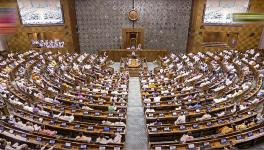Why Politics is Able to Deploy Emotions Against Us
The 20th century was known for technological innovations and political revolutions. The 21st century will be known as the age of emotions. A century of democratisation has institutionalised the principle of mutuality and reciprocity. Yet, we have not learned how to handle the newfound imagination of equality even if, in the concrete, social and economic inequalities plague us.
This anomaly results in a sharp expression of emotions in public without feeling guilty. The older liberal ethic of institutional procedures plus the Oriental ethic of self-restraint have given way to emotions. It has compounded the confusion over what emotions mean.
We are beginning to encounter emotions in their microscopic form and trying to make sense of them anew. This confused state of mind partly explains the growing incivility in collective responses and public mobilisations seen in the rise of right-wing politics.
Emotions are not merely experiential but also evaluative. We make sense of situations, events and people through emotions. As more and more people get included in the new imagination of mutuality and reciprocity and old social hierarchies loosen up, emotions and our responses to them are becoming even more complex. The connection between emotions and meaning is getting ever more mediated. The meaning of old emotions is changing and making it difficult to gain clarity over what we are experiencing. This is why the promise of authenticity that the Right holds out, in its mould of stronger regulation, more centralised leadership and totalitarian sense of governance and security, are gaining credence.
We realise now that our everyday practices, instead of making life certain, are getting replaced with momentary sensibilities. The ethic of freedom, as expressed through choice and free will, no longer gives us a sense of being free but a sense of neglect and indifference. After all, to be free also means to feel more alienated. One needs to be indifferent to be politically correct and honour the free will of others. So, we find every norm is equated with discipline and a restriction on freedom. Governance today can therefore withdraw support and call it atmanirbharta.
Take, for instance, respect. Its ethic also creates mixed-up emotions. How and when do we feel respected? Does not respect need a kind of social distance, akin to being opaque? How do we balance the urge for respect and the need to be ourselves with all our limitations? Earlier, social hierarchies guaranteed respect, either in the form of distance or through our social role. So, one could hide one’s limitations in personality or merit. But today, no such distance is available. We are relatively more transparent. And while this gives us a chance to have more dimensions of our personality legitimately recognised, it also has us to miss the old assured respect of a pre-modern society. Here, social media has become important, as it is replacing the older hierarchical social roles with newly manufactured imageries of leaders.
Love and empathy are two emotions that were considered antidotes to the modern ethic of instrumental reasoning and cost-benefit analysis. Yet, as philosopher Slavoj Zizek observes, today dating sites can “arrange” love for us, though they only enhance a “fear of fall[ing in love]”. He argues that now emotions are marked by the fear of “accidental events”, of the kind we never imagined before. In politics, this has created an image of leadership based on emotions but without the vulnerabilities that authentic emotions bring. Today, leaders can weep and repent without regret.
Many political philosophers say, only the ethic of friendship can bring us out of the current impasse of confused emotions and synthetic imagination. Friendships do not come attached with strings of obligations or expectations. They transform the mundane into fun and the momentary into memory. They have the capacity to downsize differences and give us the power to bear insult as much as hurl abuses if need be. We can rebel without rupture and ask to be left alone (or be solitary) without feeling lonely. It counters the masculine imagination of singularity by renouncing without seeking a photo-op. It cuts across social divides of caste, gender, sexuality and other identities without claiming hyper-loyalty. Friendship does not need to demonstrate jingoism to be self-assured.
Friendships do not necessarily come without emotional confusions: they only moderate the ambiguities and make them bearable. They allow us to make sense of the clutter without expecting certainty. They allow us the space to negotiate with ourselves without pre-judging. Today, the dominant political imagination is hard-pressed to convince us that there are no friendships without crypto-motives, that trust is optics and “eternal vigilance is the only guarantee of security”. The neoliberal economic model and securitisation of the state walk hand-in-hand: no longer the invisible hand. So, the social segregation within us is as important as the perpetual conflicts we have with neighbours outside, while we continually recall our potential to be “Viswa Guru”.
The age of emotions is looking for another anchor to lend us a new kind of solidarity. Without the old patronages, and based on an individualistic ethic but not the old sorts of “possessive individualism”.
Today’s regimes are mobilising against patronage but not in favour of solidarity. And they are delegitimising individualism, but along with talk about individual rights. The terminal crisis of capitalism and the still-born experiment of socialism has created this new search for alternative ethics grounded in everyday emotions. The history of the 21st century will tell us whether or not we will find our way. The current surge in authoritarian politics has to be resisted, though not without taking the message it is giving us. Mere political hogwash or pretending to promise a better alternative will not give us “acche din” but only more leaders who will continue to promise such acche din.
The writer is Associate Professor at the Centre for Political Studies in Jawaharlal Nehru University, Delhi. The views are personal.
Get the latest reports & analysis with people's perspective on Protests, movements & deep analytical videos, discussions of the current affairs in your Telegram app. Subscribe to NewsClick's Telegram channel & get Real-Time updates on stories, as they get published on our website.
























